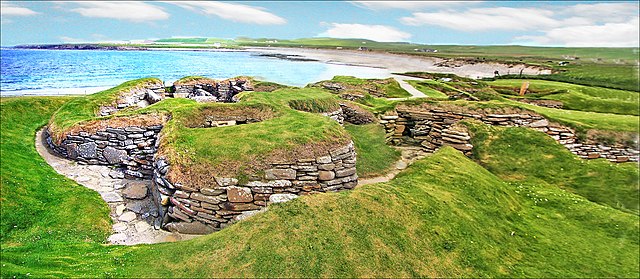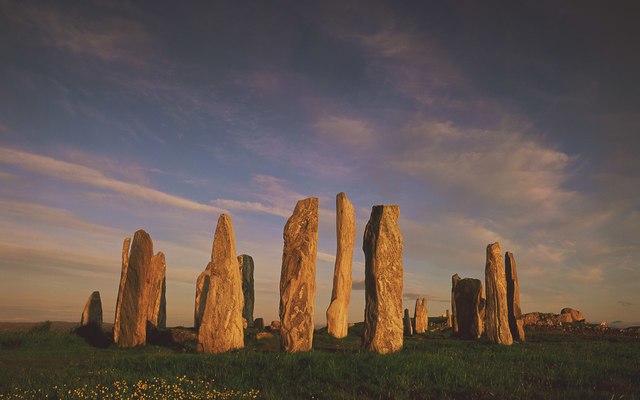Caledonia was the Latin name used by the Roman Empire to refer to the part of Scotland that lies north of the River Forth, which includes most of the land area of Scotland. Today, it is used as a romantic or poetic name for all of Scotland. During the Roman Empire's occupation of Scotland, the area they called Caledonia was physically separated from the rest of the island by the Antonine Wall. The Romans several times invaded and occupied it, but unlike the rest of the island, it remained outside the administration of Roman Britain.
The north-west ridge of Schiehallion, the "fairy hill of the Caledonians".
Scottish pub in Budapest named "The Caledonia"
Scotland is a country that is part of the United Kingdom. It contains nearly one-third of the United Kingdom's land area, consisting of the northern part of the island of Great Britain and more than 790 adjacent islands, principally in the archipelagos of the Hebrides and the Northern Isles. To the south-east, Scotland has its only land border, which is 96 miles (154 km) long and shared with England; the country is surrounded by the Atlantic Ocean to the north and west, the North Sea to the north-east and east, and the Irish Sea to the south. The population in 2022 was 5,436,600 and accounts for 8% of the population of the UK. Edinburgh is the capital and Glasgow is the largest of the cities of Scotland.
Skara Brae, Europe's most complete Neolithic village, occupied from roughly 3180 BC – 2500 BC
Callanish Stones, erected in the late Neolithic era
King of Scots Robert I addresses his troops before the Battle of Bannockburn. Drawing from c. 1900.
James VI, King of Scotland, succeeded to the English and Irish thrones in 1603.






